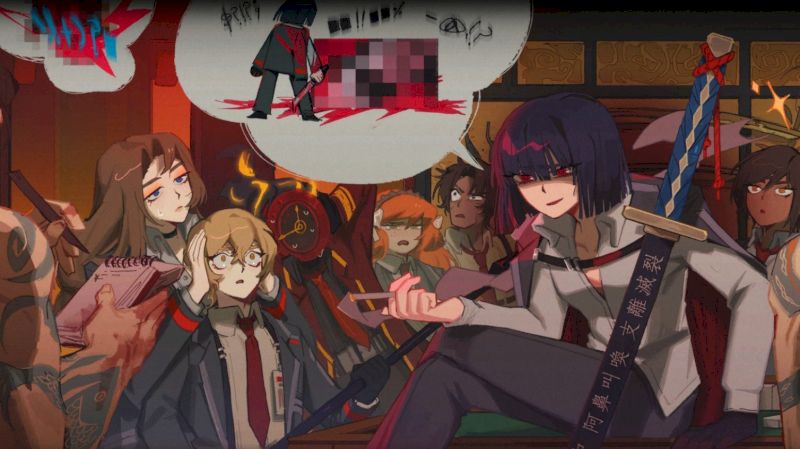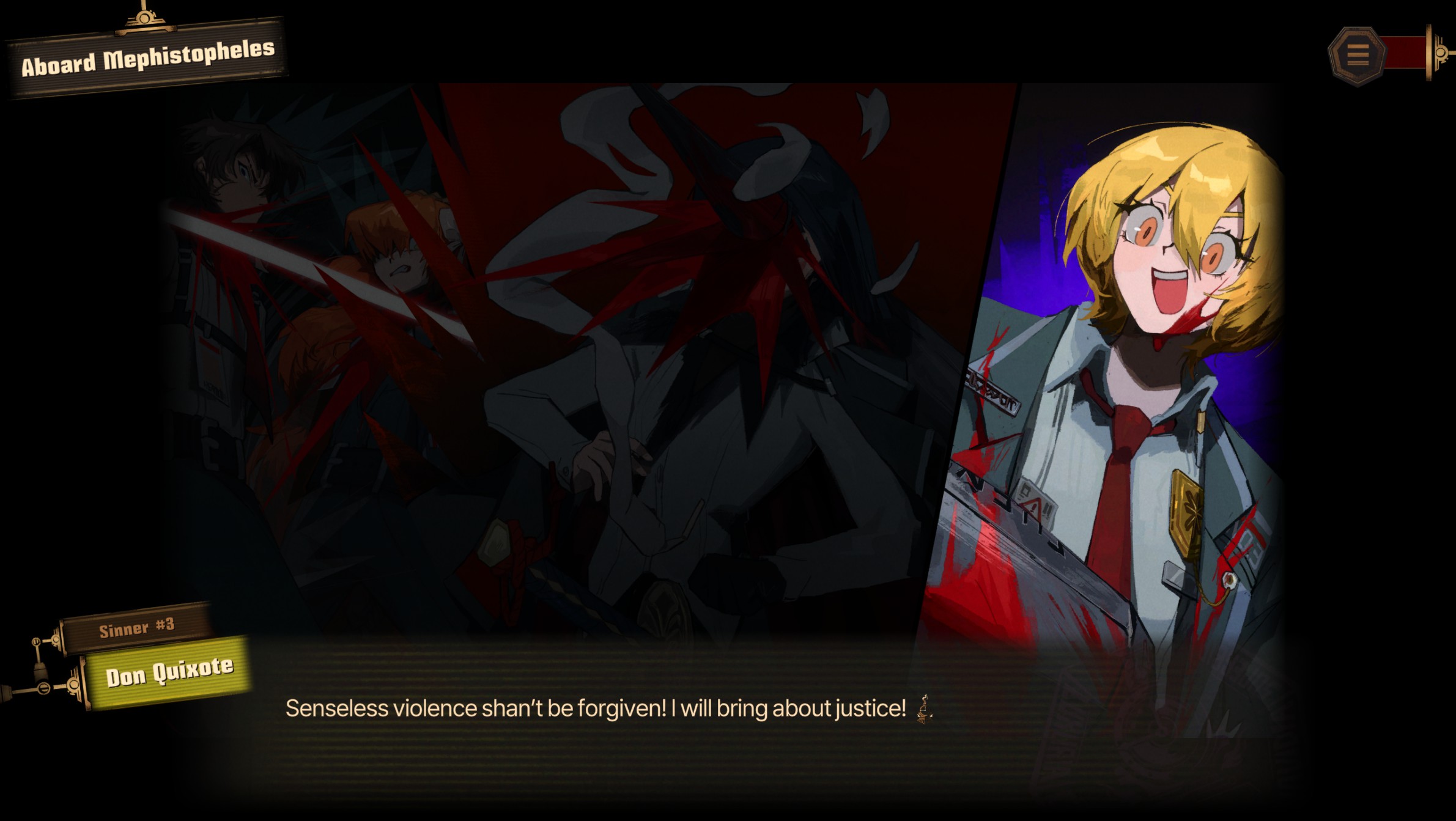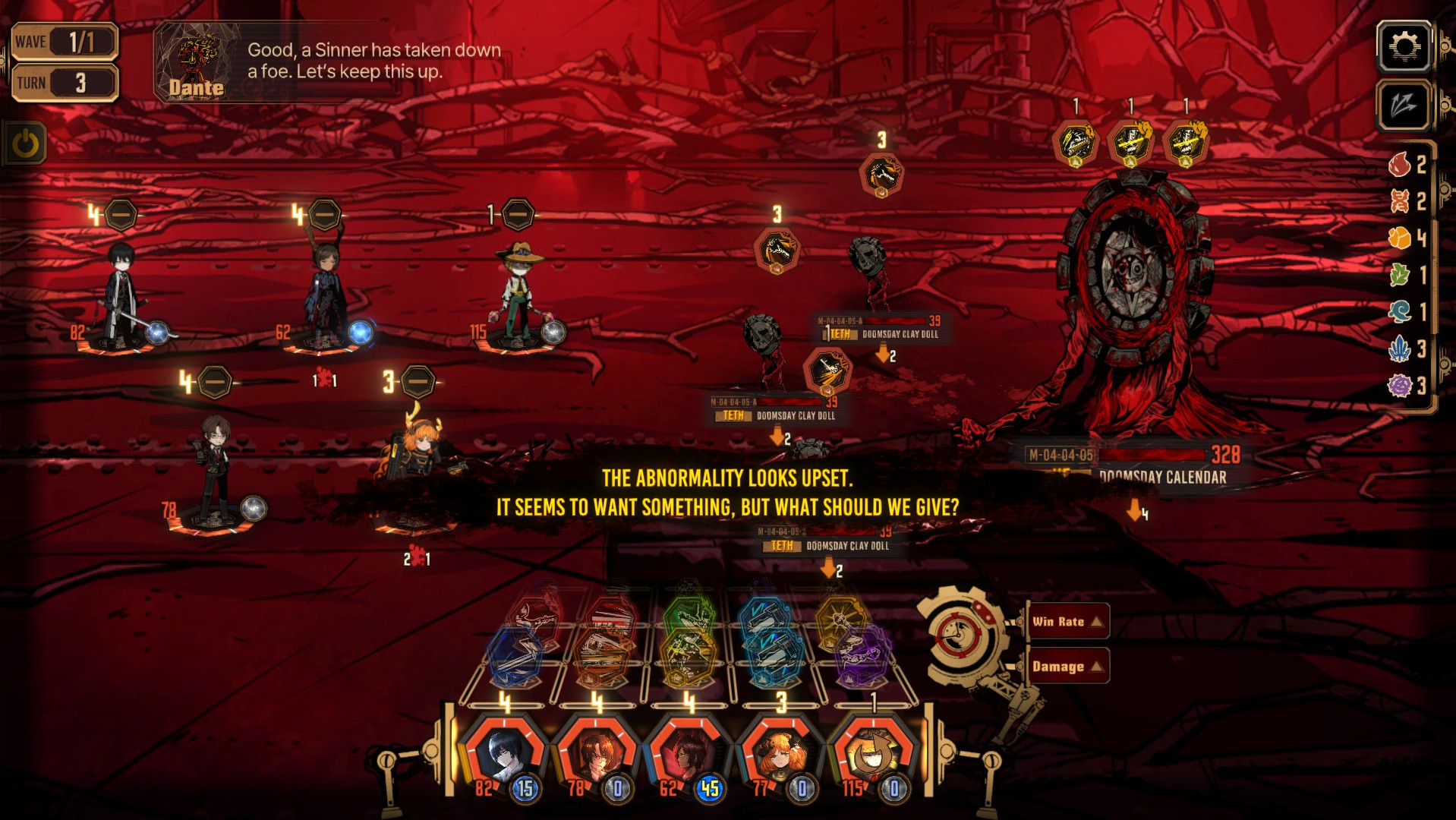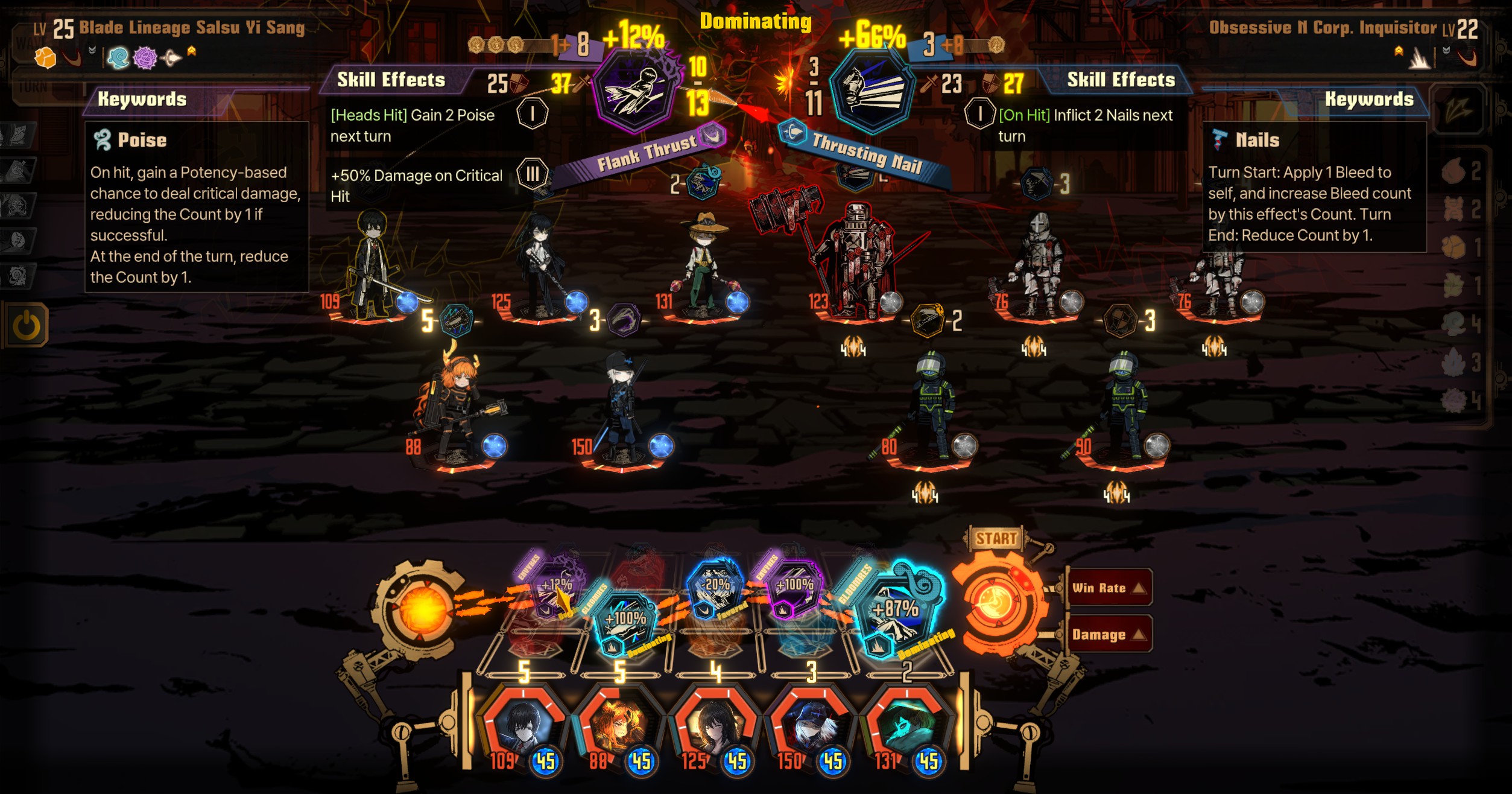
I would not ever need to reside in The Metropolis—the dystopian megalopolis on the coronary heart of Korean indie studio Mission Moon’s video games, comics and theme cafe—nevertheless it’s an enchanting place to take a road-trip by way of. That is precisely what I have been getting out of Limbus Firm, the studio’s third game and their first to not be Steam-exclusive. This formidable RPG can be on cell. And free-to-play. And supported by gacha mechanics. And sure, I used to be as frightened about that as you might be.
After sinking round thirty hours into Limbus Firm (and never feeling the necessity to spend any cash on it both), I’m very relieved to report that this can be a completely legitimate successor to Lobotomy Company and Library Of Ruina. It is darkish, gory and heavy on the dialogue and drama. It is also powerful, complicated and rewarding for gamers keen to take a seat down and untangle its often-confusing internet of fight mechanics. It is about as hardcore as cell RPGs get, and much nearer to its PC-only predecessors than its new friends.

For full newcomers to the world of Mission Moon, Limbus Firm is equal elements visible novel and turn-based RPG fight, a sequel to 2 different video games, however mechanically and narratively all its personal. In Limbus Firm, a clock-headed amnesiac named Dante (you) leads a pack of twelve immortal ‘Sinners’ (a mismatched medley of eccentrics, every loosely based mostly on a bit of classical literature or its writer) on a quest to get better a sequence of techno-magical macguffins from deserted company ‘dungeons’ beneath a dystopian cyberpunk mega-city. You additionally function out of a carnivorous bus named Mephistopheles that should repeatedly be fed reside human flesh. So, a traditional company gig, then.
If that seems like rather a lot to soak up, then count on your head to spin when you get to the fight. For these conversant in Library Of Ruina’s intensely complicated deckbuilding battles, a lot of its ideas listed here are acquainted if barely streamlined. Newcomers are going to need to juggle a messy internet of injury varieties, initiative and harm rolls, a mess of standing results, buffs and debuffs plus seven consumable assets used to gas restrict break-esque ‘EGO’ assaults. A single spherical of fight can generally have a dozen combatants clashing in opposition to one another, with solely the upper rolling attacker attending to deal direct harm.
It is tense and unpredictable preventing, however there’s actual technique and techniques concerned. Having twelve characters from the get-go—every with their very own assaults and harm resistances—means crew composition makes extra of a distinction than uncooked ranges and stats, and you may solely discipline a most of 5 characters at current. It is commonplace to change your social gathering members repeatedly, even moreso within the dungeons that make up the again half of every of the (at the moment three) story chapters, where harm and casualties persist between battles. It is totally potential to win a pyrrhic victory where rolling again to the final save level is advisable. Probably irritating, however I’ve loved the problem it presents.

Whereas many cell RPGs really feel like little greater than a skinner field asking you to gather enticing anime characters and dance them by way of a threadbare story, nearly all the things right here feels in service of Limbus Firm’s narrative. It is a densely written (and expertly translated) story with deep literary allusions and a tone oscillating from screwball comedy (chapter two had a number of laugh-out-loud moments for me) to unsettling horror. Anime fan-service this ain’t both, with its cast not sexualised within the slightest, and its gacha programs relegated purely to fight to make sure minimal dissonance between your Ludos and your Narratives.
Multiverse of misadventure
Actual effort appears to have been made to keep away from the same old exploitative trappings.
The elephant within the room is how a sequel to a pair of self-contained retail video games can go the free-to-play cell route. The reply is fairly acquainted at a look—cash-shop currencies, random rolls for unlocks and a quarterly battle move—however actual effort appears to have been made to keep away from the same old exploitative trappings. Slightly than have you ever randomly roll for brand new characters, you draw various timeline variations of your twelve Sinners from the gacha pool with their very own perks and drawbacks. These alternate variations are typically extra specialised and quirky, permitting for extra inventive social gathering builds, however the default variations you begin the game with can nonetheless carry you thru the marketing campaign because it at the moment stands.
Being a self-published game from a small studio, do not go anticipating a technological tour-de-force from Limbus Firm. I have been a fan of Mission Moon since their first game, however the subsequent miHoYo they aren’t. That stated, I adore this game’s aesthetics, leaning into barely rough-edged webcomic stylings, with broad brushstrokes on all the things from the backdrops to dialogue artwork panels and even the animatic-style fight sprites. Battles additionally depart the arenas affected by craters, gashes and shattered corpses, lending its fights a bit extra vitality. The entire game has a constant and evocative look, constructing on the type they established for Library Of Ruina, with out being overly sophisticated.

Where the game does go above and past is the audio. All the story is effectively voiced (albeit solely in Korean), with loads of emotive performances. The music is where it actually shines although; there are a number of generic tracks used for dialogue, dungeon crawling and the principle menus, however every of the present three chapters has six or extra distinctive battle themes, and so they’re all bangers. Every chapter additionally wraps up with an ending theme sung by the first character, and the present last boss has a multi-phase vocal theme by Mili, mirroring Ruina’s larger confrontations.
After a bit of over thirty hours of play and with no actual cash spent, I’ve at the moment exhausted all that Limbus Firm has to supply (exterior of its every day roguelike XP-booster dungeons) and had a good time doing so. Now begins the lengthy look forward to Mission Moon to make good on their roadmap (which appears to be aiming for an additional three or 4 chapters by the top of the 12 months) together with enhancements to the Mirror Dungeons. They’ve additionally introduced some main tweaks to the fight engine to make defensive abilities extra viable and the early-game much less tough. This one is a really energetic work-in-progress, and I can solely see it enhancing over time.
Seeing how a lot I’ve loved these first three chapters, and figuring out Mission Moon’s penchant for wild escalation of their earlier video games, I am bucked up and able to journey. Newcomers to The Metropolis may need to begin their tour with Library Of Ruina for a barely slower introduction to this world and its complicated fight.









